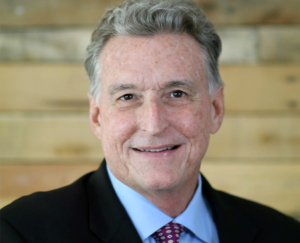by Pastor Doug Pratt
 “For I know the plans I have for you,” says the Lord. “They are plans for good and not for disaster, to give you a future and a hope.” – Jeremiah 29:11 (NLT)
“For I know the plans I have for you,” says the Lord. “They are plans for good and not for disaster, to give you a future and a hope.” – Jeremiah 29:11 (NLT)
The entire world is eagerly anticipating the return to some semblance of what we knew as “normal” before March of 2020. Some are anticipating a lightning-fast bounce back; like runners in the starting blocks of a 100-meter sprint, they are coiled to spring into full recovery mode. Others are approaching the re-opening of many locations and activities with guarded caution and fear. Many of us will be feeling a reluctance to be in large crowds of people and to drop the 6-foot rule of social distancing. Some will have a strong impulse to stay home as much as possible, even when government guidance is relaxed. The emotions of anxiety and dread will linger, both for those who contracted the disease and for those who did not.
My expectation is that the most likely course for our church, community, and nation will be that life returns in stages and segments. Not everyone will feel the same way about loosened restrictions. The “new normal” will not, for a long time or even ever, look exactly like the “old normal.”
Under the Governor’s direction, most of our state begins Phase One reopening on Monday, May 4, with individual counties free to modify his guidance. Since Southwest Florida has not been a “hot spot” the way the southeast coast has been, our area is able to resume more normal activities with the limited restrictions.
Here at First Church, live worship will resume in the sanctuary on Sunday, May 3 with services at 8AM and 10AM. Activities are limited to worship only; prudent sanitary precautions and plenty of room for social distancing will be in place. The 10AM service will be livestreamed directly online, so if you cannot attend or feel uncomfortable doing so, we invite you to join us on our website to be part of our scattered congregation that morning. Starting Monday, May 4, the church building, the office, and the BookCenter will be open. Some church events and classes will gradually be re-introduced during May and June. Updates will appear in our weekly electronic First Things First which is sent out on Saturday afternoons.
One of the many ways in which the 2020 coronavirus epidemic has been unlike other disasters and challenges our nation has faced is that we will have a less definitive “all clear” signal for our recovery to begin and our activities to resume. When Hurricane Irma blew through Southwest Florida two and a half years ago, those of us who did not evacuate rode out the storm as its winds increased, the eye of calm passed over us, and then the winds returned. But when the rain stopped, the air became calm, and the sun reappeared from clouds, we all knew that it was time to begin the clean-up and recovery process. Once the radar showed that the storm was hundreds of miles away, there was no hesitancy or reluctance. We simply rolled up our sleeves and got busy. But it is not so clear-cut and simple with a worldwide pandemic. Until effective medical treatments are proven and a vaccine widely available, the recovery process will be slow.
The prophet Jeremiah, who lived 2500 years ago, spoke God’s Word to people who were trying to cope with a disaster. Their disaster was a crushing military defeat and the exile of many of them to the distant city of Babylon. The wonderful words of reassurance in our text (Jeremiah 29:11) have comforted and encouraged millions for 2½ millennia: God has not forgotten me, He has a plan for me, and His plan will bring a blessing.
But the immediate context is especially relevant to us. Jeremiah’s counsel to his countrymen who found themselves in exile was to embrace the “new normal” rather than cling wistfully to the fantasy that the “old normal” would soon return. It is precisely in their new circumstances that they would find the “future and hope” God was promising to them.
I believe the message to us today from Jeremiah 29 is comparable. The remainder of the year 2020 and perhaps even the year 2021, will look different than what we had planned or expected. Trips and vacations will be cancelled or rescheduled; household budgets will be adjusted; daily activities and routines will be altered. We may need to do things in new ways and learn new skills. Rather than complaining or grieving over what is lost, we can choose to embrace and find the blessings in what we will now have. Our future, though different, can be very good. Maybe God has a surprise for us. Maybe He will do something for us or in us that we had never anticipated.

